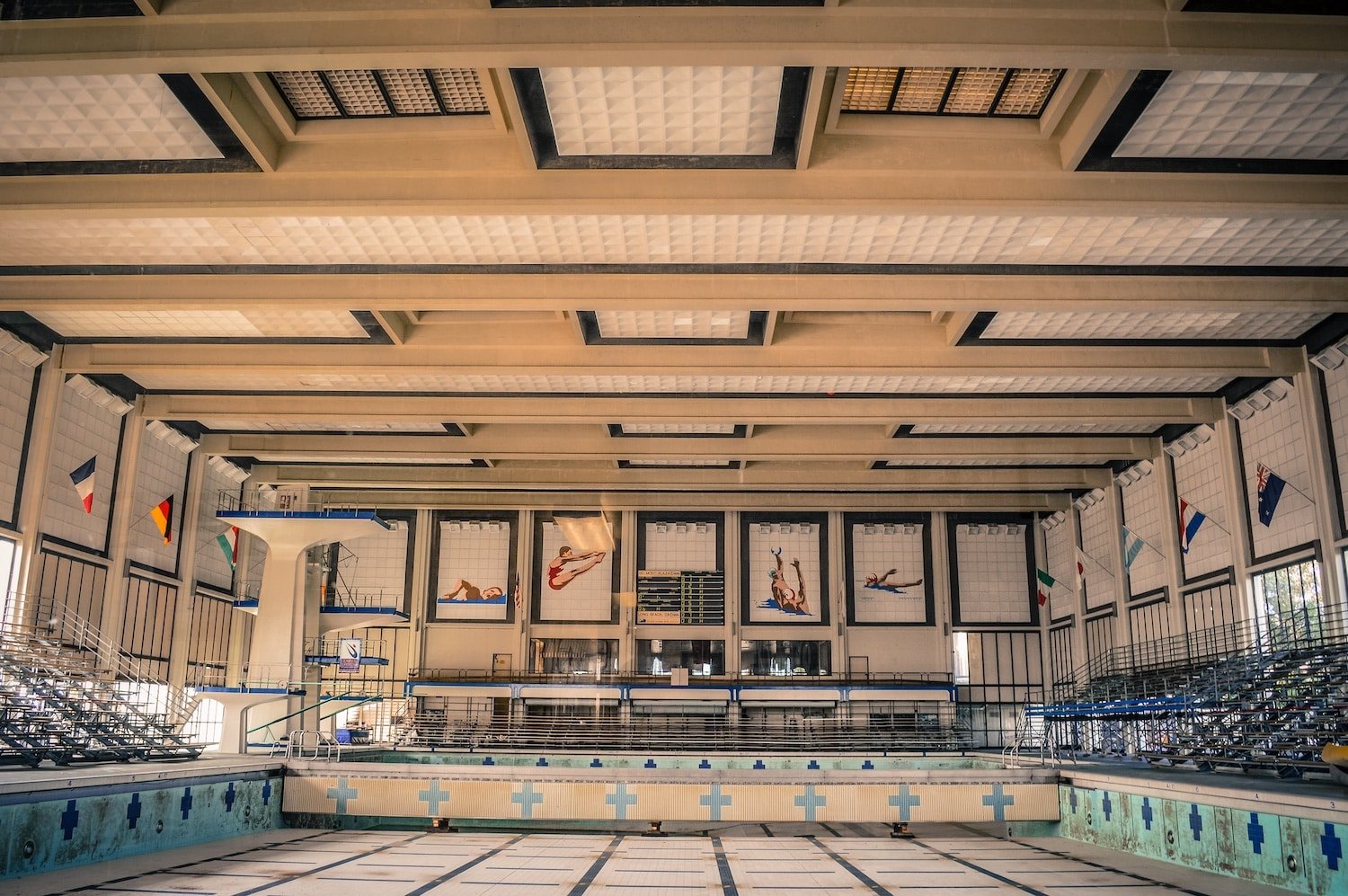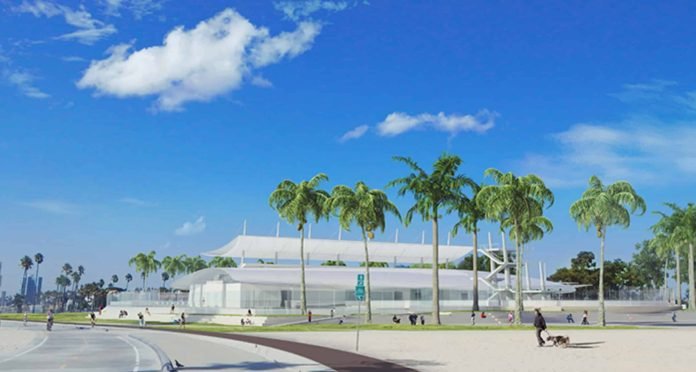After demolishing the original mid-mod, rich-in-history Belmont Plaza Olympic Pool in 2014 after citing structural concerns, the battle to move forward with a permanent replacement has been uphill—and the city wants to continue public outreach before it faces the California Coastal Commission again early next year to receive a stamp of approval for the structure.

Seeking “feedback and recommendations” for the “future Belmont Beach and Aquatics Center”—long-touted by Mayor Robert Garcia and others as a key component of Long Beach’s participation in the upcoming 2028 Summer Olympics to be hosted by Los Angeles—the survey is set to ask residents about everything from fees and programming to accessibility and transportation options to and from the center.
“The new Belmont Beach Aquatics Center will honor the rich Olympic history of the Belmont Pool, an important icon and landmark in our city,” Garcia told Longbeachize this morning. “We are thrilled to be entering into this phase of the project, making us one step closer to making the new center a reality. I encourage the community to provide robust input so we can ensure the project is inclusive of our entire community.”

As reported by Jason Ruiz of the Long Beach Post, the city was required to return to the California Coastal Commission with alterations to the center as well as a larger push toward community outreach. Coastal commissioners voted 10-1 in February of this year to let the project move forward on the contingency of these changes.
The largest concern was that of accessibility: Given the pool’s location in one of the city’s most affluent areas, the commission felt the pool—and access to it—needed to reflect the economic and social diversity of the city itself, asking the city to take the charge in figuring out how the rest of the city can better access the pool.
For more information on the survey—available in English, Spanish, Tagalog, and Khmer—click here.

The history behind the original pool
When the Belmont Plaza Olympic Pool was dedicated on August 15, 1968, it was Long Beach’s most exuberant embrace of aquatic sports since it had first ran the Men’s Olympic Swim Trials in 1932 at the Colorado Lagoon. Come 15 days later, the Olympic preliminary trials began.
The $3.7M Belmont Plaza Olympic Pool stretches for 240 feet along the coast of Long Beach, just east of the Belmont Pier. Housed in a facility that used to sit some 2,700 spectators, the pool itself was a marvel at the time it opened: one million gallons filled an all-tile, 8-lane pool that stretched 50 meters long, nearly 23 meters wide, and hit a depth of over 5 meters deep.
It was even equipped with underwater television and sound equipment while boasting of then-extraordinary electronic scoring and timing apparatuses.
After the trials, 200,000 locals used the facility every year (not included are the countless skaters that used the concrete benches as their playground).

Aesthetically, the building was an ode to the Modern-Greco design, with white pillars typical of Greek architecture mixed with the clean, straight-line style of mid-century modern design. One of its most admirable aspects was how it catered to spectators: If you were to sit on the northern set of bleachers, you were not just provided a spectacular view of the athletes but a gorgeous view of the Pacific Ocean thanks to the massive glass walls that anchor both the southern and northern sides of the building.
It went on to host the Olympic trials once more in 1976 and acted as a training site for the 1984 Olympics, in addition to a number of NCAA Championships, Pac 10 and Big West Championships, CIF Southern California High School Championships, Speedo Championship Series meets and the annual Southern California “Q” meet.
It’s the place where three-time Gold medalist Aaron Peirsol won his senior-year CIF championship. It’s the place where gold medalist Jason Lezak set records at the Big West Championships.
One of the pools most recent events, the Toyota Southern California Grand Prix of Swimming, was held in both 2007 and 2008. When you look at the roster now, one would notice Michael Phelps, just beginning to gain a dedicated fan base at the time. However, it was five-time Olympic medalist Natalie Coughlin for whom the event holds the most value: She broke the US record—the very one she held—in the 200-yard freestyle.


